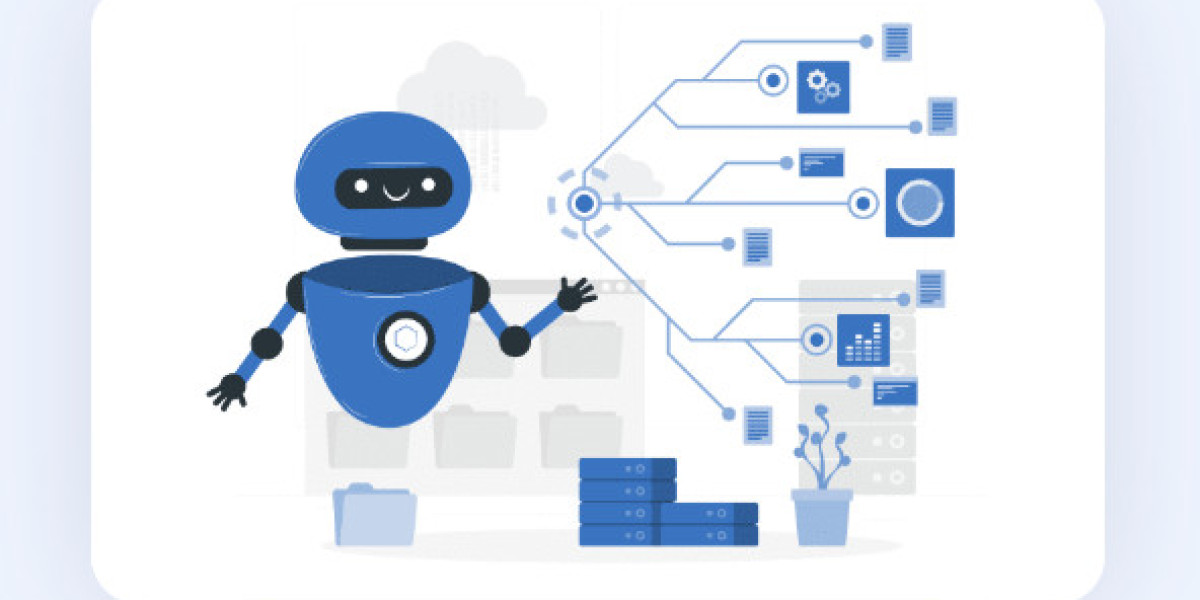In today’s competitive business landscape, customer retention and loyalty have become pivotal factors for success. While attracting new customers is important, businesses that excel at retaining their existing clients often enjoy higher profitability and sustained growth. One of the most innovative and efficient tools businesses can use to enhance customer retention is chatbots. Chatbot development has revolutionized the way brands engage with their customers, offering numerous opportunities to provide a more personalized, timely, and seamless experience.
The Importance of Customer Retention and Loyalty
Before diving into the specifics of chatbot technology, it’s essential to understand why customer retention and loyalty matter. Retaining existing customers is more cost-effective than acquiring new ones. According to industry studies, acquiring a new customer can cost five times more than retaining an existing one. Furthermore, loyal customers tend to spend more and become brand advocates, promoting the business to others.
However, customer retention isn’t solely about maintaining sales; it’s about building a lasting relationship with customers. It involves consistently meeting their needs, addressing their concerns, and enhancing their overall experience. Loyalty is built on trust and a positive experience, which is where chatbots come into play.
How Chatbots Enhance Customer Engagement
Chatbots are AI-powered tools that interact with customers through natural language, providing quick and effective responses. These tools are available 24/7, making them an ideal solution for engaging customers at any time of day or night. By providing timely responses and addressing customer inquiries or issues promptly, chatbots foster a sense of reliability and attentiveness that can greatly improve customer retention.
1. 24/7 Customer Support
Customer support is a critical aspect of retaining customers. Chatbots can provide round-the-clock support, answering common questions and resolving basic issues without the need for human intervention. This always-on support gives customers peace of mind, knowing they can receive assistance whenever they need it, even outside of business hours.
For example, an e-commerce store may use a chatbot to answer questions about product availability, order status, and return policies at any time. Customers no longer have to wait for office hours to receive help, which significantly improves their experience and satisfaction with the brand.
2. Instant Response to Inquiries
In today’s fast-paced world, customers expect quick responses. Slow customer service can frustrate customers and lead to abandoned purchases or, worse, lost business. Chatbots can instantly respond to customer inquiries, providing immediate assistance with minimal delay. This quick resolution of problems or questions can lead to a more positive customer experience, which increases the likelihood of repeat business.
By integrating a chatbot with your website or messaging platforms, businesses can respond to customers’ questions in real-time. Whether it's answering product queries, booking appointments, or assisting with payment issues, chatbots provide the instant answers that customers crave.
3. Personalized Customer Interactions
One of the major advantages of chatbot development is the ability to personalize interactions. Chatbots can analyze customer data and use that information to offer tailored recommendations or solutions. By understanding a customer’s preferences, past purchases, and behavior, chatbots can offer relevant product suggestions or suggest solutions based on their history with the company.
For example, an online retailer can use a chatbot to recommend products based on the customer’s previous purchases or browsing behavior. This level of personalization not only makes the customer feel valued but also increases the likelihood of them returning for future purchases.
4. Proactive Engagement
Chatbots can go beyond reactive responses and engage customers proactively. For example, a chatbot could send reminders about items left in a shopping cart, offer discounts on products the customer has shown interest in, or provide updates about new product releases. These proactive messages encourage customers to revisit the business and make another purchase.
Proactive engagement also helps businesses stay top-of-mind. By using chatbots to send timely notifications, businesses can remind customers of promotions, seasonal sales, or loyalty rewards, thereby reinforcing the relationship and encouraging continued loyalty.
5. Streamlined Customer Feedback Collection
Customer feedback is essential for improving products and services, and chatbots can make it easier to gather valuable insights. By using chatbots to conduct surveys or collect feedback after a purchase, businesses can gain a better understanding of their customers’ experiences and identify areas for improvement. Gathering feedback in real-time can help businesses address issues quickly and make improvements that enhance the customer experience.
Moreover, chatbots can analyze feedback data and provide businesses with actionable insights. This helps businesses identify trends, resolve recurring issues, and adapt their strategies to better meet customer needs.
How Chatbots Build Customer Loyalty
In addition to improving customer engagement, chatbots play a significant role in building long-term customer loyalty. Loyal customers are those who consistently return to a business because they feel valued and appreciated. Chatbots can help nurture this loyalty in several ways.
1. Loyalty Program Integration
Many businesses offer loyalty programs as a way to reward repeat customers. Chatbots can be integrated with loyalty programs to make it easier for customers to track and redeem their rewards. Instead of manually checking loyalty points or visiting a website to redeem rewards, customers can simply interact with a chatbot to access their rewards balance and redeem points instantly.
For example, a coffee shop chain could integrate a chatbot with their loyalty program, allowing customers to check their points and redeem them for discounts or free items through the chatbot. This seamless integration enhances the customer experience and encourages customers to continue their loyalty to the brand.
2. Efficient Issue Resolution
Nothing frustrates a customer more than having their issue unresolved. Chatbots can act as the first line of defense for handling customer complaints and issues. By quickly resolving common issues or escalating more complex problems to a human representative, chatbots ensure that customers are not left waiting for a response.
Customers who feel their problems are addressed swiftly are more likely to remain loyal to the brand. By enhancing the efficiency and speed of issue resolution, chatbots can help businesses retain customers and build long-term loyalty.
3. Consistent Brand Experience
One of the key factors in fostering customer loyalty is consistency. Customers expect the same level of service and quality every time they interact with a brand. Chatbots help businesses provide a consistent experience by offering uniform responses to common queries, ensuring that customers always receive the same high-quality service regardless of when they reach out.
Whether customers are interacting with a chatbot on the website, through social media, or via mobile apps, they will have a consistent experience that reflects the brand's values and standards. This consistency builds trust, which is essential for customer loyalty.
4. Increased Customer Satisfaction
Ultimately, chatbots contribute to a higher level of customer satisfaction. By providing immediate responses, personalized service, and seamless interactions, chatbots help create a positive experience for customers. Satisfied customers are more likely to return and continue their relationship with a brand, which boosts both retention and loyalty.
Additionally, happy customers are more likely to recommend a business to others, helping businesses gain new customers through word-of-mouth referrals. This cycle of satisfaction and recommendation contributes to a brand’s long-term success.
Conclusion: The Future of Customer Retention with Chatbot Development
In conclusion, chatbots offer businesses an incredible opportunity to enhance customer retention and loyalty. By providing 24/7 support, personalizing interactions, engaging customers proactively, and offering efficient issue resolution, chatbots create an experience that encourages customers to return. Furthermore, chatbots contribute to building brand consistency, loyalty programs, and satisfaction, all of which are critical for fostering long-term relationships with customers.
Investing in chatbot development is no longer a luxury for businesses—it’s a necessity. The ability to engage with customers at any time, deliver personalized experiences, and resolve issues swiftly makes chatbots an essential tool for any business looking to stay ahead of the competition. As technology continues to evolve, chatbots will only become more sophisticated, offering even greater opportunities for businesses to improve customer retention and loyalty.






